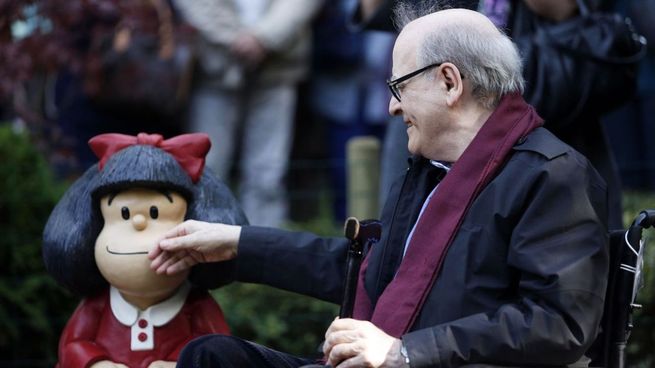Why does time pass faster as we get older? How do we save time? Questions that Dr. Marc Wittmann researched at the Institute for Border Areas of Psychology and Mental Health in Freiburg.
OÖN: When do people consciously perceive time?
Dealing with social time, knowing what minutes, hours, days, weeks are, is a process that we have to painstakingly learn from the start of school. But children experience time much earlier. This has to do with the impulsiveness of children, who would rather want everything now than wait.
Can you learn to wait?
We should, because our life unfortunately always consists of waiting. It doesn’t help to get angry and blame other people when we’re stuck in traffic or the train doesn’t come. I recommend the paradoxical intervention: go to the longest checkout in the supermarket and try to experience it in peace. Most of the time you don’t stand for more than five minutes, a very short period of time. When you say I’ll be there in five minutes, you mean you’ll be right there. But at the checkout, we subjectively find five minutes to be a blockage. You can cognitively restructure yourself, empathize with yourself and try to see such an empty time, which otherwise makes you angry, in a positive light and relax.
How can the perception of time be measured?
In one experiment, subjects and patients sat across from me, there was silence and nothing happened, and after 50 seconds an alarm clock rang. I asked how long the interval was and was given a time estimate. It turned out that people who are a little more impulsive estimated this time longer. These people can’t really wait, they want a reward right away or they want to get out of an uncomfortable situation right away. You can also have duration reproduced, for example by presenting a tone with a certain duration, followed by a second tone, which you then have to turn off by pressing a button when you have the feeling that it is now as long as the first.
Why does time seem to pass faster the older we get?
This is a memory effect because we become more routine over the course of life. The first events we experienced in adolescence and young adulthood – the first beer, the first kiss – are so special. This spell is very memorable. Things seem longer because so much of what has been experienced is exciting, new and emotional. But at some point you’ll be in the same place for 30 years, in the same job, maybe always going to the same vacation spot. That can’t be stored as firmly as the novelties, these surprising moments. The routine of always being the same makes time pass faster and faster in retrospect.
The clock tells the time. What would happen if there were no timekeeping?
The time or the calendar are social times that we use to be able to agree on exact times with other people. It is very important, especially for economic processes and procedures, that we know exactly what is happening and when. In our complex society we have millions of people who all have to work together, who can only be coordinated by communicating with one another in a structured way over time.
There are also cultures that don’t take time very seriously. Are they happier?
It’s a romantic notion. One aspect is that wealth is greater in clock-based societies. On the other hand, there are event-time oriented societies, as defined by the American social psychologist Robert Levine. They have a session that ends when it ends, not before. Time-based societies have a meeting until 3:15 p.m., and then it’s over, no matter what. Being less pressed for time also means a certain quality of life, but more often than not these societies also have fewer financial resources at their disposal, which in turn creates another form of stress.
Why are we talking about an accelerated time?
The processes in society run faster. In the pre-digital age, you received a letter that you answered by hand after maybe two weeks. Now it happened to me that I was in a session for a long time and when I came back from it there were several e-mails from a colleague. The first was about a question. The second said, “Did you get my mail?” And the last one said: “I found out, now I know how to do it, everything is fine”. That means: Actually, she shouldn’t have sent me an e-mail at all. But today you expect everything to happen immediately. One is in constant, fast-paced interaction with the world.
Due to the changed world of work, we have more free time than before. How do fast food and power napping go with this?
We already had the problem with the introduction of the washing machine. The mother, as it was then, no longer spent three hours in the laundry room, but turned on the machine with a push of a button. Time saved, you could say. But you immediately fill the empty intervals with new activities. This extends to leisure time, when the weekend is totally planned. One can no longer experience living freely into the day. Meditation, which ideally should actually free us from time, is also allowed to wither away into a five-minute power meditation.
How do we save time?
For example, by not planning a Sunday, doing nothing, sleeping into the day. And if you have children, don’t drive them around. The other thing is to come to rest in the evening, to relax and not to check your e-mails just before midnight, so that an e-mail from your employer will only make you sleep badly. It is very important for mental hygiene to strictly observe the time of rest and activity.
Under what circumstances does time fly by, when does it seem to stand still?
The so-called flow experiences are characterized by the fact that time passes quickly. It can be when I’m totally absorbed by a video game, but also by a highly interesting conversation with friends that I get lost in, or a walk that makes me lost in thought. It happens with all of them that you don’t pay attention to yourself and therefore also to the time. The more I experience myself, for example while waiting, the slower time passes.
what is boredom
When I say I’m bored, I’m actually saying I’m bored, I don’t know what to do with myself – because I have no occupation, no future direction, no positive thoughts or feelings.
How can the striving for work-life balance, which is particularly noticeable among younger people, be explained?
On the one hand, this has to do with mental hygiene, on the other hand, there are also purely hedonistic reasons, because you want something out of life. There were post-war generations that worked a lot, did little sport and got fat bellies. Then came the yuppie generation, who worked 14 hours a day and made a lot of money, which by the way still exists today. And now these are people who are striving for more self-realization, are looking for a job that is a little quieter, where you have less stress, but still have enough money for their actual activities in the leisure and friendship area.
How do you recognize time thieves?
We steal our time because there are external stimuli to which we submit. This can be your own work, in which you are trapped. Mothers can only be there for the family from morning to night, washing clothes, driving the children around and then preparing dinner for the husband – this processing of things also takes up time. That’s why it’s about finding islands of presence for yourself, about one hour of leisure a day.
On the night of Sunday, an hour is “stolen” from us. What is the best way to deal with the time change?
Our internal clock is based on winter time, which is actually real time. And suddenly everything is postponed by an hour and this mini jet lag can lead to problems sleeping the first night. But because it’s only an hour, don’t brood over it too much, just deal with it calmly. We have such little jetlags every Monday because we change our sleeping habits a little at the weekend, maybe live longer into the night and then sleep in the next day. This is where our inner rhythm of time gets confused. Economically, however, it will be important to abolish summer time at some point.
Source: Nachrichten




